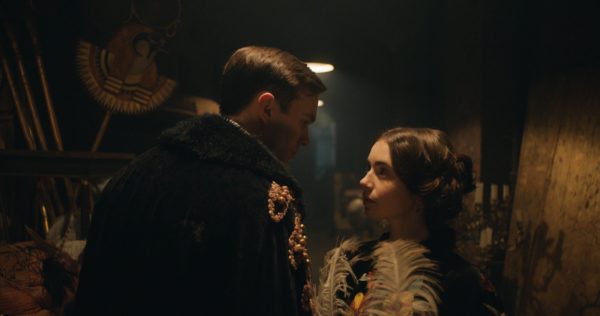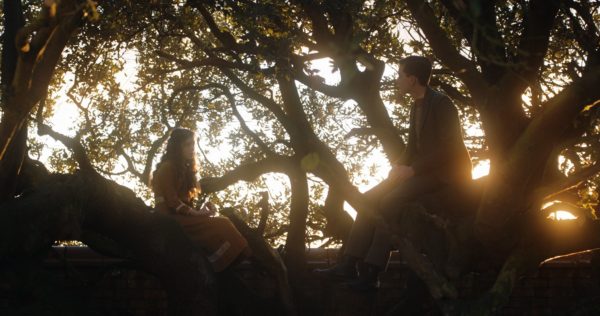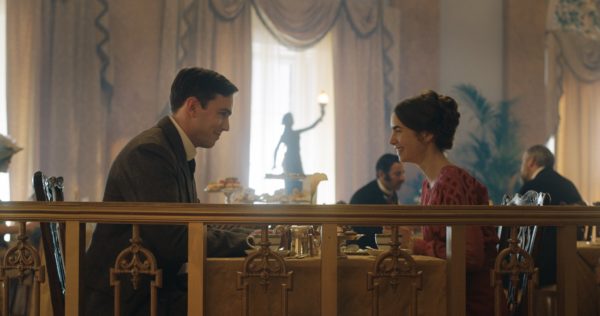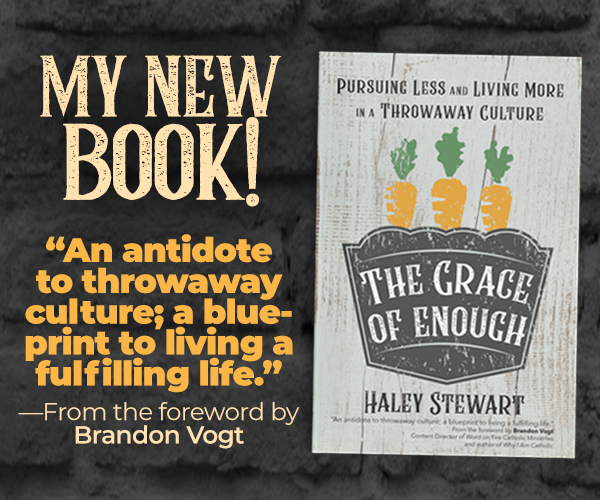In Tolkien, the new movie based on the early life of J. R. R. Tolkien, myth and romance are the antidote to war.
Guest Review by Boze Herrington

“To be caught in youth by 1914,” wrote English novelist J. R. R. Tolkien in a second-edition foreword to The Lord of the Rings, “was no less hideous an experience than to be involved in 1939 and the following years. By 1918 all but one of my close friends were dead.”
In the contemporary West we’re privileged enough to assume that most people will live out their natural lifespan. How must it feel to be drafted into a senseless war on the cusp of maturity? To know that your dreams for yourself could be extinguished by a stray bullet or the untimely fall of an artillery shell? To watch brothers and best friends coughing up blood, their pale forms convulsing like roaches on the backs of wagons?
To its credit, the movie Tolkien (Fox Searchlight, 2019) attempts to answer these questions. It succeeds only fitfully.
The fact that we have The Lord of the Rings or the wider Middle-Earth legendarium at all is a minor miracle. The twenty-four-year-old Tolkien was present at the Battle of the Somme in 1916, in which over a million men were wounded or killed in the space of a few months. Tolkien begins with this battle, teasing the possibility of young Tolkien (Nicholas Hoult) being killed in combat before flashing back to perfunctory scenes of an idyllic childhood in Sarehole Mill, England and the sudden loss of his beloved mother.

The narrative shuttles abruptly from one scene to another—one minute Tolkien is playing a rough game of sports with some neighborhood boys, the next he’s moving to industrial Birmingham whose forges glimmer against the night sky like the fires of Isengard—leaving us with little reason to care about the characters and settings that have been so hastily introduced. Eventually Tolkien begins attending King Edward’s School and the movie’s thematic purpose comes into focus. It’s here that he meets the group of boys—Christopher Wiseman, Geoffrey Bache Smith, and Robert Gilson—whose literary and artistic fellowship will prove formative. His youthful obsession with mythology widens and deepens, and he meets Edith Bratt, a high-spirited, independent young woman who becomes his playmate, muse, and, ultimately, spouse.
The scenes in which the adolescent Tolkien discovers love, companionship and the extent of his formidable imagination are some of the most purely entertaining in the movie. Harry Gilby plays him as gawky and precocious, all awkward limbs and unchecked enthusiasm, looking slightly like a Christian home-schooler with his green sweater-vest and cherubic face. Youth Edith (Mimi Keene) resembles a figure out of a pre-Raphaelite painting with her long raven tresses and sly glances, which ripen in the adult Edith (played by Lily Collins) into a puckish contempt for societal conventions and the patriarchy. As the focus of the film shifts from Birmingham to gas-lit Oxford, we see them playfully arguing over Tolkien’s first stories, getting thrown out of a hotel, and dancing in the basement during a performance of Wagner’s Ring Cycle. Though Edith’s fervent feminist posturing and disdain for her dull provincial life sometimes feel anachronistic, we never doubt that this is someone the romantic, poetic, myth-obsessed Tolkien would have fallen in love with.

At school, meanwhile, Tolkien and his companions form a writing and arts club known as the Tea Club, Barrovian Society. With its emphasis on male camaraderie and the value of artistic composition, it can be seen as a pre-figuring of the more famous group he would later form with C. S. Lewis and Charles Williams, the Inklings. If the scenes that follow—in which Tolkien gets drunk, punches a guy, consoles a closeted gay friend—feel inspired more by Brideshead Revisited than the historical record, the nostalgic cinematography and period recreation of wartime Oxford keep the movie from flagging even when the narrative falters.
It’s here that the movie is at its most directionless, meandering from scene to scene while struggling to make a coherent statement about Tolkien’s journey toward personal and artistic maturity. It would have made more sense for the writers to center the story around Tolkien’s relationship with Lewis and the other Inklings—who encouraged the reluctant professor to publish The Hobbit—and his fumbling efforts to recover trust in himself and others after the trauma of losing his first friends in the war. Late in his life Tolkien would praise Lewis as “a man at once honest, brave, intellectual—a scholar, a poet, a philosopher—and a lover, at least after a long pilgrimage, of our Lord.” Discovering a kindred spirit would have provided a fitting resolution to the losses depicted late in the film, yet Tolkien has no time for Lewis, or the Inklings—or indeed for Tolkien’s Catholic faith. A viewer coming to this movie with no knowledge of his religious convictions might come away assuming that Tolkien was just a sensitive young man who drew spiders and had visions of horses on the battlefield, a George R. R. Martin for a gentler era, but Tolkien himself argued that Christianity was central to his vocation. Lord of the Rings stripped of its religious subtext is like a cathedral stripped of its crosses and altars.
Yet the movie fumbles toward something approaching a coherent thematic statement in those final scenes, where Tolkien tells a grieving mother that art and myth and poetry are vital, even necessary, in a world ravaged by war. In this the film is faithful to the convictions of the real Tolkien, who argued that a revival of myth was desperately needed to counter the horrors of modernity. In a final letter, written from the front, a friend tells him, “May you say the things I have tried to say long after I am not there to say them,” and one is left wondering how many potential Tolkiens died in the trenches, taking their songs and poems with them.
Boze Herrington is a Catholic writer and novelist who lives near Austin, Texas. He loves Agatha Christie mysteries and St. Thomas Aquinas. He supports the canonization of Flannery O’Connor. He tweets about books, beauty, faith and fairy-tales @sketchesbyboze

Ah, I’m disappointed to read the lack of Tolkien’s religious influence in this movie. As much as I would like to see aspects of his life depicted on the silver screen, and as dreamy as the scenes look, the omission of this part of his life seems a bit like keeping a large dinner table propped up without its fourth leg.
I don’t have time to read the whole post… sorry! But you rock.
glad you liked it!
Well written, Boze! I still want to see the film, even if it’s devoid of his faith (which is truly a shame)… I’m such a sucker for British cinema.
Thank you, Tsh. I think anyone who has ever enjoyed a British period drama will have a good time watching it.
Thank you for the review! I just saw the movie last night. I was disappointed that Tolkien’s faith was downplayed so heavily in the film. However, the camaraderie amongst the members of the TCBS, magical moments like Edith dancing under the trees, and the cinematography and the soundtrack were all wonderful. While the pacing was definitely off and the lack of Catholicism was disappointing, I still thought the film worth seeing.
I think it’s safe to say that cinematically, the Tolkien franchise is dead. His heirs sold out for money, and the Hobbit movies, for sure, carry none of the charm or the brilliance of the book. It’s just a cash cow now. I was very disappointed to read about this film; nearly every review of it points out that Tolkien’s faith—which was central to his writing and his life—is merely glossed over. He genuinely suffered for his faith; his mother was ostracized by her family for converting, as were Tolkien and his wife. And to have his part in C.S. Lewis’ return to Christianity being passed over is just sickening.